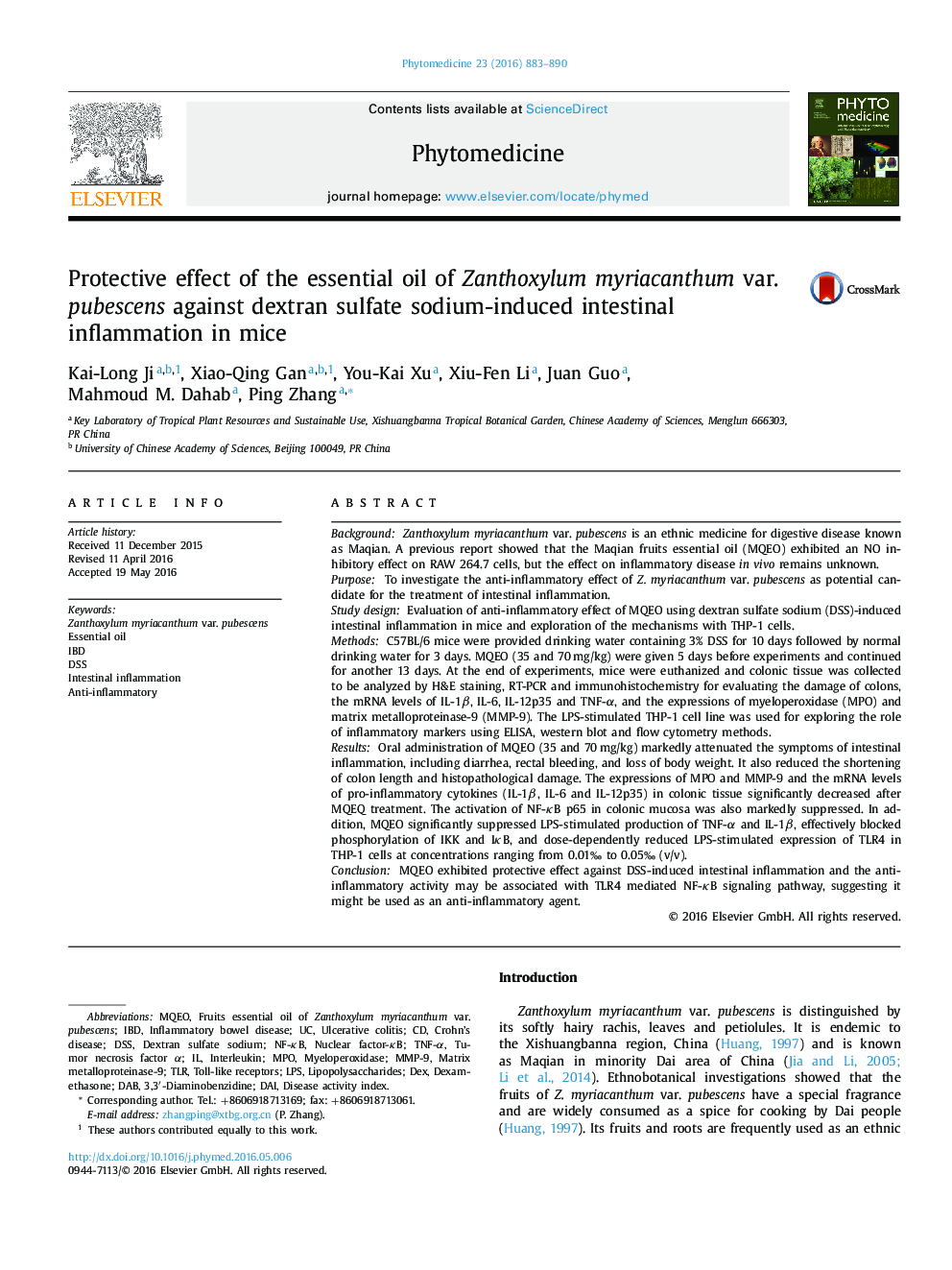| کد مقاله | کد نشریه | سال انتشار | مقاله انگلیسی | نسخه تمام متن |
|---|---|---|---|---|
| 2496220 | 1116114 | 2016 | 8 صفحه PDF | دانلود رایگان |

BackgroundZanthoxylum myriacanthum var. pubescens is an ethnic medicine for digestive disease known as Maqian. A previous report showed that the Maqian fruits essential oil (MQEO) exhibited an NO inhibitory effect on RAW 264.7 cells, but the effect on inflammatory disease in vivo remains unknown.PurposeTo investigate the anti-inflammatory effect of Z. myriacanthum var. pubescens as potential candidate for the treatment of intestinal inflammation.Study designEvaluation of anti-inflammatory effect of MQEO using dextran sulfate sodium (DSS)-induced intestinal inflammation in mice and exploration of the mechanisms with THP-1 cells.MethodsC57BL/6 mice were provided drinking water containing 3% DSS for 10 days followed by normal drinking water for 3 days. MQEO (35 and 70 mg/kg) were given 5 days before experiments and continued for another 13 days. At the end of experiments, mice were euthanized and colonic tissue was collected to be analyzed by H&E staining, RT-PCR and immunohistochemistry for evaluating the damage of colons, the mRNA levels of IL-1β, IL-6, IL-12p35 and TNF-α, and the expressions of myeloperoxidase (MPO) and matrix metalloproteinase-9 (MMP-9). The LPS-stimulated THP-1 cell line was used for exploring the role of inflammatory markers using ELISA, western blot and flow cytometry methods.ResultsOral administration of MQEO (35 and 70 mg/kg) markedly attenuated the symptoms of intestinal inflammation, including diarrhea, rectal bleeding, and loss of body weight. It also reduced the shortening of colon length and histopathological damage. The expressions of MPO and MMP-9 and the mRNA levels of pro-inflammatory cytokines (IL-1β, IL-6 and IL-12p35) in colonic tissue significantly decreased after MQEQ treatment. The activation of NF-κB p65 in colonic mucosa was also markedly suppressed. In addition, MQEO significantly suppressed LPS-stimulated production of TNF-α and IL-1β, effectively blocked phosphorylation of IKK and IκB, and dose-dependently reduced LPS-stimulated expression of TLR4 in THP-1 cells at concentrations ranging from 0.01‰ to 0.05‰ (v/v).ConclusionMQEO exhibited protective effect against DSS-induced intestinal inflammation and the anti-inflammatory activity may be associated with TLR4 mediated NF-κB signaling pathway, suggesting it might be used as an anti-inflammatory agent.
Figure optionsDownload high-quality image (331 K)Download as PowerPoint slide
Journal: Phytomedicine - Volume 23, Issue 9, 15 August 2016, Pages 883–890